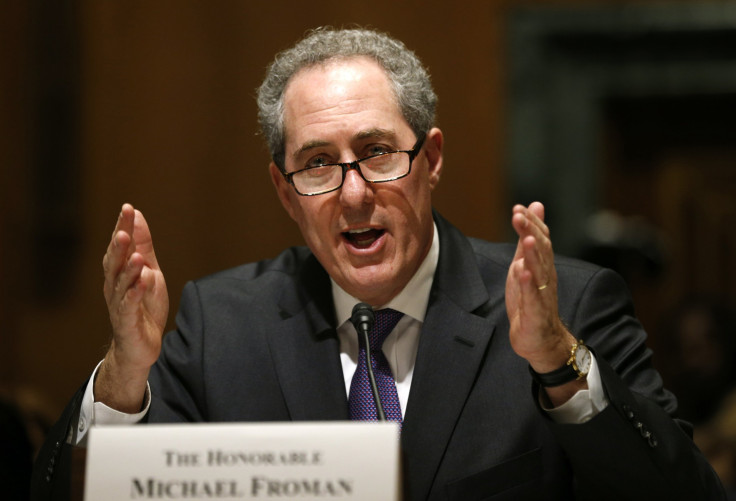Trans-Pacific Partnership Trade Deal: US Banks Get Victories In TPP Agreement

The millions of dollars big U.S. banks spent lobbying for the Trans-Pacific Partnership could be about to deliver big dividends. The massive trade deal covering 40 percent of the world’s economy yielded a final set of accords Monday -- pending approval by Congress -- and the American financial industry stands to greatly benefit, gaining expanded access to millions of borrowers and investors in developing markets.
The financial matters covered in the TPP, whose details remained secret, range from arcane bank licensing laws in the partnership’s dozen member countries -- which include Canada, Chile, Japan and Malaysia -- to measures that could affect huge flows of capital and information.
The Securities Industry and Financial Markets Association, or Sifma, has argued that breaking down barriers to global market penetration is crucial to the profits of the sector. “Free trade agreements and the market access they provide are vital for the continued success of the financial services industry,” Sifma executives wrote in a 2012 letter to the U.S. trade officials. Sifma has lobbied for the TPP since at least 2009.
The group and its allies have likely had a receptive ear. Michael Froman, chief negotiator at the Office of the U.S. Trade Representative, is a former executive at Citigroup.
Among lobbyists’ top requests were measures that would provide deeper market access to member countries and, once branches were established there, would guarantee that foreign banks faced the same laws as domestic ones -- a state of affairs known as “national treatment.”
Those concerns apply particularly to certain Asian partner states. In Vietnam, for example, foreign banks may open only one office per province, according to the U.S. Trade Representative. In Malaysia, a foreign-owned lender may not open within 1.5 kilometers of an existing local bank branch.
It’s not just retail banking operations abroad that could see a boost from the TPP. Industry groups have pushed for measures that would smooth a patchwork of international regulatory differences and make it tougher for member governments to pass new financial reforms.
In order to uphold that state of affairs, TPP negotiators also cemented rules around so-called investor-state dispute settlement panels. These tribunals allow private corporations to file suit against countries whose laws threaten profits -- occasionally arousing the ire of targeted countries, as when Philip Morris sued Australia over its tobacco packaging laws.
These provisions have also proved toxic to reform hawks in Congress like Elizabeth Warren, the Massachusetts Democrat who has argued the TPP or a future trade deal could contain measures allowing a president to “override our domestic financial rules.”
President Barack Obama, who has been a stalwart proponent of the trade deal, called that charge “completely wrong.” The White House has maintained that the financial regulatory measures in the TPP jibe with the 2010 Dodd-Frank Act.
Despite the fact that the deal remained under wraps, one detail has emerged that will come as unwelcome news to entities such as Citigroup and JPMorgan: According to the Financial Times, banks would have to keep foreign clients’ records within their borders if that’s what their home countries required.
That means instead being able to funnel sensitive client data back to servers in the U.S., which Sifma has called an “essential” provision of any trade deal, banks would have to set up new data facilities in each country.
Sifma sent a cautious note to press on the news of the TPP’s passage, noting that its lobbyists “look forward to examining its details.”
However the TPP might delight or disappoint the financial services industry, it still needs to pass a deeply divided Congress to take hold. Legislators have as long as 90 days to wrangle over details before Obama can sign the accord into effect.
© Copyright IBTimes 2024. All rights reserved.




















